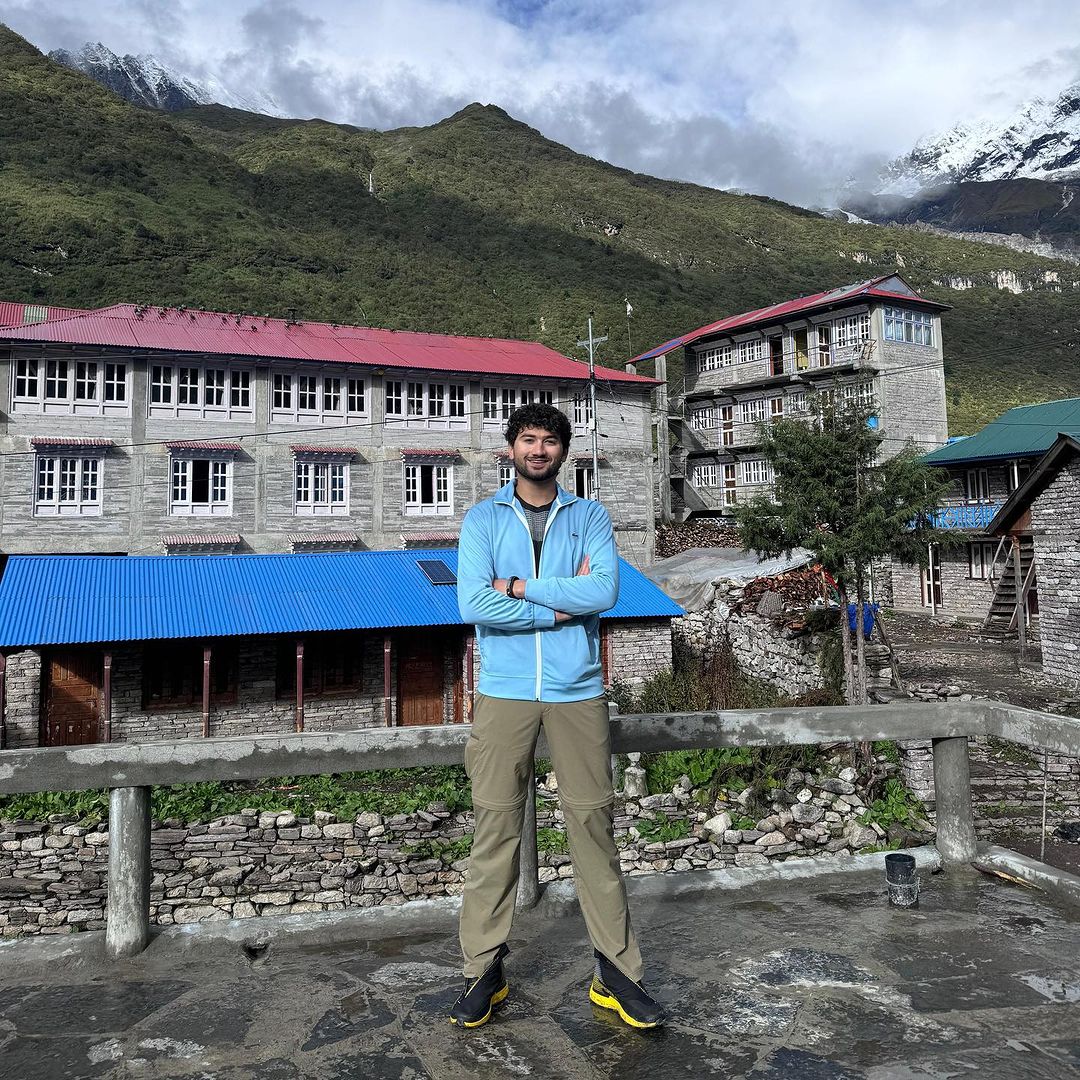KHAPLU, Gilgit-Baltistan: Pakistan’s leading mountaineer, Shehroze Kashif, is set to embark on a journey to Tibet next week in pursuit of becoming the first high-altitude climber from his country to conquer all 14 peaks towering above 8,000 meters, with Shishapangma, yet unconquered by Pakistani adventurers, marking the final summit.
The Pakistani climber, currently in Nepal, having already ascended 13 of the world’s tallest peaks, revealed that his ambition to complete all 14 began nearly five years ago.
Shishapangma, standing at 8,027 meters, requires permission from Chinese authorities, which can sometimes be difficult for mountaineers to secure.
“I was 11 when I started climbing,” Kashif told Arab News over the phone from Nepal. “When I summitted Broad Peak in 2019, it was my dream to climb all 14 peaks as the youngest climber in the world. Now, many young climbers have come in the field. I couldn’t do it on time due to financial reasons.”

This photo, posted on September 15, 2024, shows young mountaineer Shehroze Kashif in Nepal as he is set to become only Pakistani to summit all 14 ‘Eight Thousanders.’ (Photo courtesy: Instagram/@thebroadboy)
He said that he wanted to conquer Shishapangma last year, but the Chinese authorities closed the mountain for climbing after an accident in which four people were killed.
“Now, I have reached Nepal and will leave for Tibet to summit the last peak,” he continued.
Kashif said he had finalized all the arrangements, adding that he was both mentally and physically fully prepared.
Asked about the most memorable peak during his mountaineering career, he said it was Nanga Parbat in Pakistan.
“We were declared dead when we were stuck at the height of 7,800 meters,” he recalled. “That’s why this mountain will always remain in my heart.”
Speaking to Arab News, Karrar Haidri, the secretary-general of the Alpine Club of Pakistan, said it was a proud movement for the country.

This photo, posted on September 15, 2024, shows Pakistani mountaineer Shehroze Kashif in Nepal as he is set to become only Pakistani to summit all 14 ‘Eight Thousanders.’ (Photo courtesy: Instagram/@thebroadboy)
“The young climber Shehroze Kashif has reached Nepal and will soon summit Shishapangma,” he said over the phone, adding that another Pakistani climber, Sirbaz Khan, was also preparing to conquer the same peak.
He said that more and more people in Pakistan were becoming interested in mountaineering and entering the field.
Other renowned Pakistani climbers also wished Kashif luck.
“Shehroze is fast, got iron will and power,” Anam Uzair, a Pakistani female climber who summited Mt Manaslu and Gasherbrum-II, told Arab News over the phone. “I pray for his safe climb. He will get it this year, if God wills.”

This photo, posted on September 15, 2024, shows Pakistani mountaineer Shehroze Kashif in Nepal as he is set to become only Pakistani to summit all 14 ‘Eight Thousanders.’ (Photo courtesy: Instagram/@thebroadboy)
Naila Kiani, another prominent female mountaineer, noted that despite Pakistan having five of the world’s 14 peaks over 8,000 meters, no Pakistani had yet climbed all of them.
“This will be a significant achievement as two Pakistani climbers are set to summit all 14 peaks this time,” she said. “One of them [Sirbaz Khan] has climbed 11 peaks without using supplemental oxygen.”
Geographically, Pakistan is considered a climbers’ paradise, rivalling Nepal with its abundance of peaks over 7,000 meters. In addition to K2, Pakistan is home to four of the world’s 14 summits exceeding 8,000 meters.
The unspoiled beauty of northern Pakistan was once a major tourist draw, though the tourism industry suffered setbacks due to years of violence. However, the security situation has remained stable in Gilgit-Baltistan, which continues to attract foreign trekkers and climbers.















